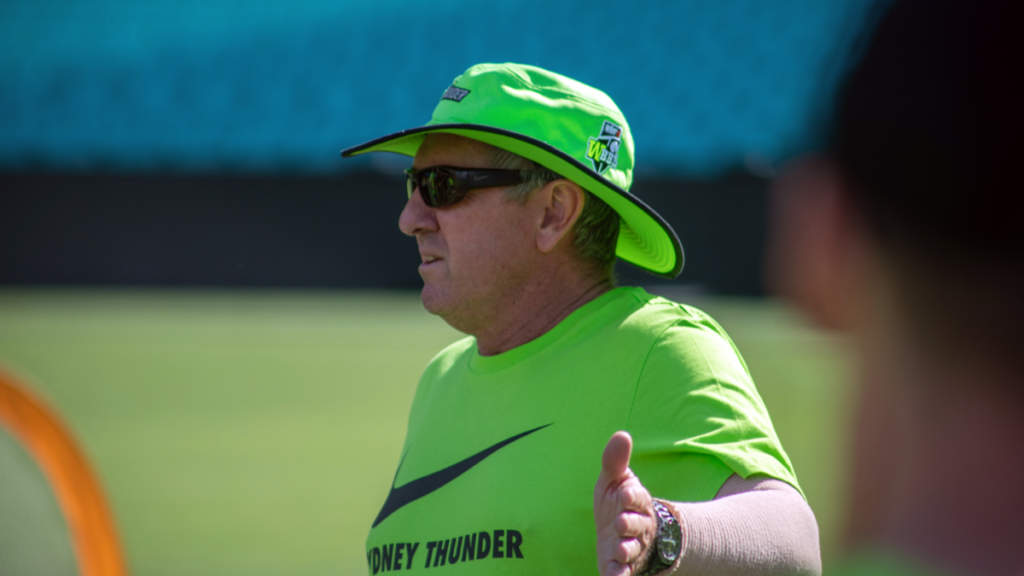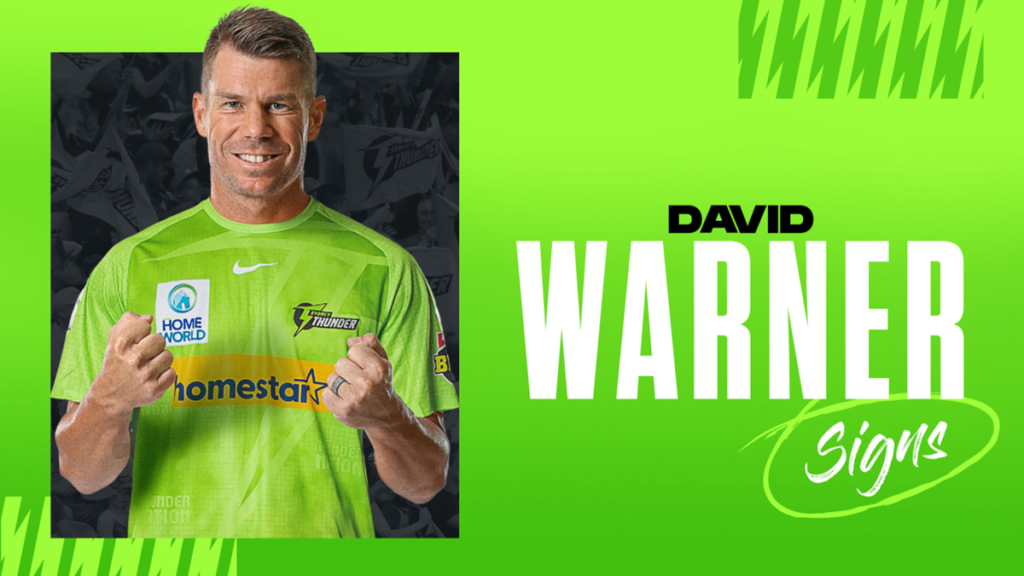His contract, which is expected to be worth AUD$340,000, will reportedly match that of the platinum players in the upcoming BBL draft; a portion of that sum will come from Sydney Thunder’s wage cap and the remaining amount from Cricket Australia.
After the South Africa ODI series scheduled to be played in January was scrapped, Australia’s multi-format players were afforded a number of options with the ever-increasing number of T20 leagues around the world. The Australian reported late last month that David Warner would like to play in the new ILT20 league in the UAE rather than the BBL.
That triggered a series of events that quickly came to pass, and as a result, the player will rejoin the team for which he has appeared in two of the three BBL games that he played in his entire career. Warner claimed to be aware of the wider picture and the significance of the BBL to the Australian game as a whole.
“I care deeply about the game, and I am conscious that the conditions that I enjoy as a professional cricketer have largely come from other senior players who have come before me.”
“That is how the game is structured and I understand that my contribution to the future of the BBL will hopefully benefit the next generation of players long after I am retired,”
Warner said.

Sydney Thunder coach Trevor Bayliss backed Warner’s commitment to the game.
“Davey’s record on the field speaks for itself and I have no doubt he already has, and will continue to, inspire many, many kids to play and love cricket.”
Warner’s endorsement is a big win for the BBL and CA in general, given they are engaged in a legal dispute with host broadcaster Channel Seven that primarily concerns the calibre of the competition. As the BBL tries to compete with the riches available overseas, it is also likely to be the beginning of Australia’s top players being paid significantly more to participate in the league.
As a result of the quickly changing T20 franchise market, discussions surrounding the new MoU between CA and the Australian Cricketers’ Association will pick up speed soon.
The amount of money being offered to foreign players, particularly those in the platinum category, and how it will put them far ahead of the highest-paid local players like Glenn Maxwell, Marcus Stoinis, and Mitchell Marsh were already noted by Australia’s stars. There will be pay increases across the board now that Warner commands a comparable amount, but that is probably not going to happen until next season.
In three seasons from 2011 to 2013, Warner made three previous BBL appearances. In his maiden game at the MCG against the Melbourne Stars, he scored a century. The season after, he played for the crosstown rival Sydney Sixers and recorded a duck against the Thunder. Then, in a game his team lost in 2013, while playing once again for the Thunder, he scored a half-century against the Sixers and shared a century-opening stand with Usman Khawaja.
Warner was one of few Australian players without a BBL contract. Last week, Travis Head and Marnus Labuschagne extended their contracts with respective organisations, while Steven Smith declined Sixers’ original offer as he deliberated on whether or not he would like to take a break before the tour to India.
Australian Test skipper Pat Cummins as well as fellow senior bowlers Mitchell Starc and Josh Hazlewood will also take time off during the BBL, while all-rounder Cameron Green’s Big Bash plans remain undisclosed at the moment, with reports suggesting that his participation will depend on his Test match workload.


